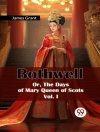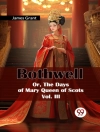In ‘The Wheat Princess, ‘ Jean Webster masterfully weaves a narrative that explores themes of independence, resilience, and societal roles through the eyes of its spirited protagonist, a young heiress. Set against the backdrop of early 20th-century America, the novel employs a charming yet poignant literary style, characterized by Webster’s signature wit and humor. The narrative not only critiques the limitations placed on women of that era but also invites readers to consider the complexities of wealth and personal fulfillment, all while maintaining a lighthearted tone that makes the story both accessible and engaging. Jean Webster, a prominent American author known for her sharp observation of social issues, drew inspiration from her experiences and the societal dynamics of her time. Educated at Vassar College, Webster’s literary voice is informed by her progressive beliefs and advocacy for women’s rights. Her personal convictions and exposure to various social classes helped shape her portrayal of strong female characters, making them relatable and empowering, as seen in the character development throughout ‘The Wheat Princess.’ I wholeheartedly recommend ‘The Wheat Princess’ to readers who appreciate clever writing infused with social critique. Webster’s delightful prose and engaging plot will resonate with anyone interested in the evolution of women’s roles in society while providing an entertaining and thought-provoking reading experience.
Об авторе
Jean Webster, born Alice Jane Chandler Webster on July 24, 1876, was a renowned American author and playwright during the late 19th and early 20th centuries. She hailed from a literary background, being a grandniece of the celebrated writer Mark Twain. Webster’s literary style often converged around themes of social justice, women’s suffrage, and education reform, reflecting progressive ideals of her time. Her narratives frequently featured young female protagonists challenging societal norms, embodying her own feminist beliefs. Webster’s education at Vassar College, where she graduated in 1901, greatly influenced her writing and activism. ‘The Wheat Princess’ is among her noted works, encapsulating the experiences of an American heiress embroiled in the complexities of Italian social and political life. This book, while perhaps less famous than ‘Daddy-Long-Legs’ or its sequel ‘Dear Enemy, ‘ showcases Webster’s flair for crafting engaging and thought-provoking fiction. Tragically, Webster’s life and career were cut short; she died following childbirth complications on June 11, 1916. Her contributions to literature continue to be celebrated for their wit, charm, and keen observations of turn-of-the-century America. Webster’s work has been recognized for its pioneering role in the development of early 20th-century American literature, particularly in the realm of young adult fiction.












